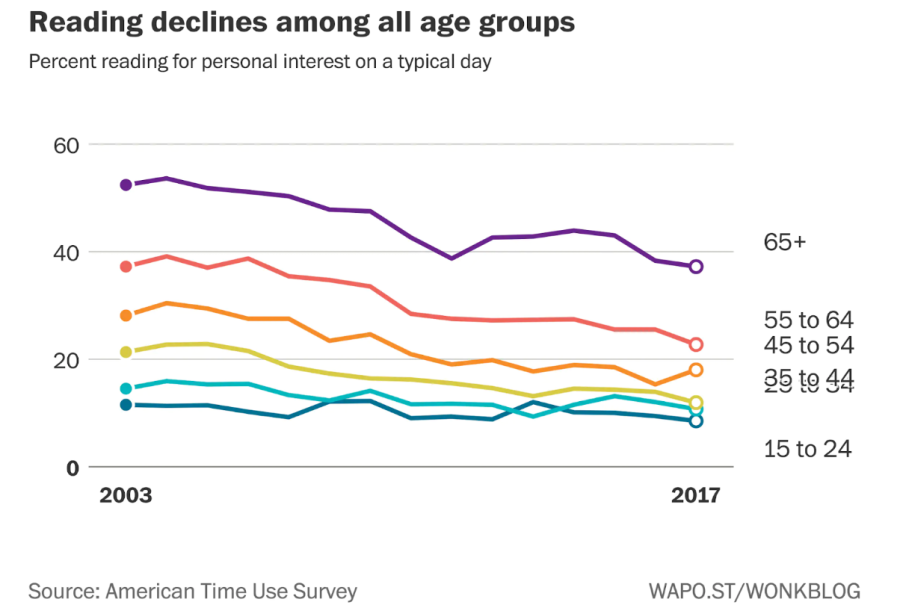How Reading For Pleasure Affects A Student
Books, encouraged by every teacher, cherished by millions. But why? Why are we constantly encouraged to read? Does it really better our minds, improve our vocabulary, and help us in the real world? Yes.
The opinion of books varies for a multitude of reasons. Throughout history, playwrights have constantly been objects of debate. Even in Shakespeare’s time, writers were considered ridiculous for their supposedly unrealistic or scandalous creations. As time progressed, however, writers became the object of immense research and their works fuel for the imagination. Even in the nineteenth century, some believed reading to muddle the mind.
Now, however, studies have shown reading to improve vocabulary and expand creativity immensely.
Many recent studies have proven that standardized test scores in students who read for pleasure are much higher than those who do not. Studies have seen increased scores in vocabulary, reading comprehension, spelling, and world understanding among readers.
Students at the Benjamin School are assigned much reading as part of their curriculum, which also helps in these standardized tests. Students who read apart from assignments say that they believe themselves to be much better equipped in reading comprehension and vocabulary exams.
Unfortunately, fewer and fewer people in America read for pleasure today. Most spend time on social media or watching television which is often counter-productive in terms of bettering one’s mind. According to an article in the Washington Post, the number of Americans who read for pleasure has dropped approximately thirty percent since 2004, majorly due to the rise of technology. Unfortunately, this study also shows people ages 15-25 read the least on a daily basis. The average American spends 2 hours and 45 minutes per day watching television, about 10 times the amount devoted to pleasure reading. Furthermore, the average teenager in America has screen time of over eight hours!
Even the majority of Benjamin students do not appreciate reading. Freshman, Ava Reece states that she “doesn’t really read because it’s not interesting to me. I just watch movies or shows instead”.
There are many excellent movies and tv shows that can broaden knowledge and maybe even vocabulary, but watching tv does not have nearly as many benefits as reading a good book.
So what actions are being taken to combat this drop in reading for pleasure? Last quarter, Benjamin’s teachers began offering extra credit to a student who read a book, one not assigned, and wrote a report on it. According to several students I spoke to, this was “really motivating. I don’t read much but I felt like it was worth it for the extra credit.” Benjamin’s teachers are striving to bring back the joy of reading and are succeeding in doing it. Not only do they assign interesting and fun books for class, but they highly encourage independent reading for its many benefits. Since many students are less and less interested in reading, teachers have also begun assigning IXL which helps with grammar and reading comprehension. Though not the same as a good book, IXL has also shown to be very helpful on SAT and PSATs.

Sage Ponchock is a staff writer for The Pharcyde. As a freshman, she is beginning her first semester in expository writing. Sage has been at the Benjamin...


